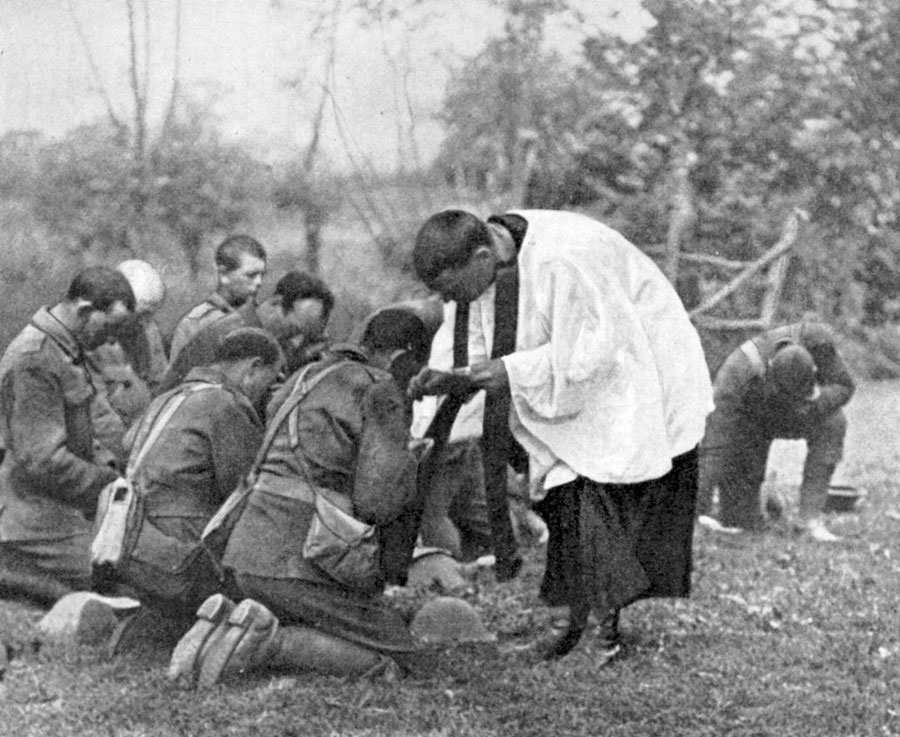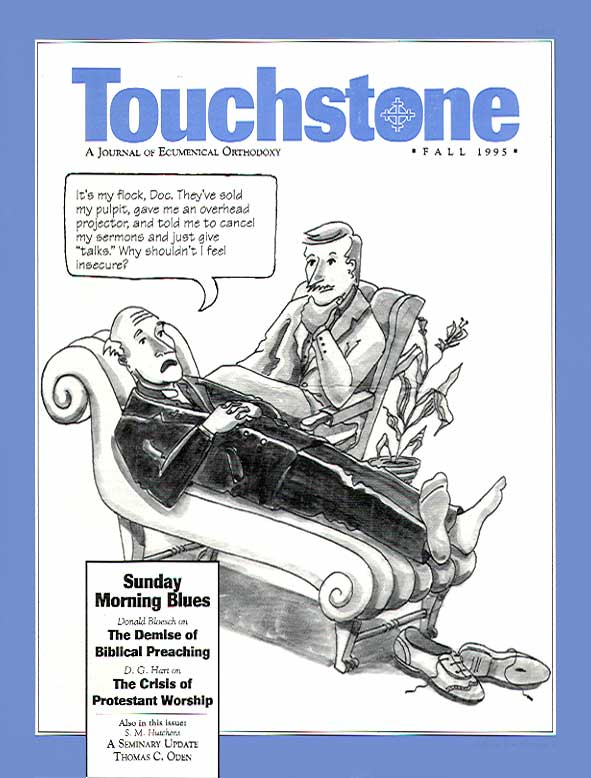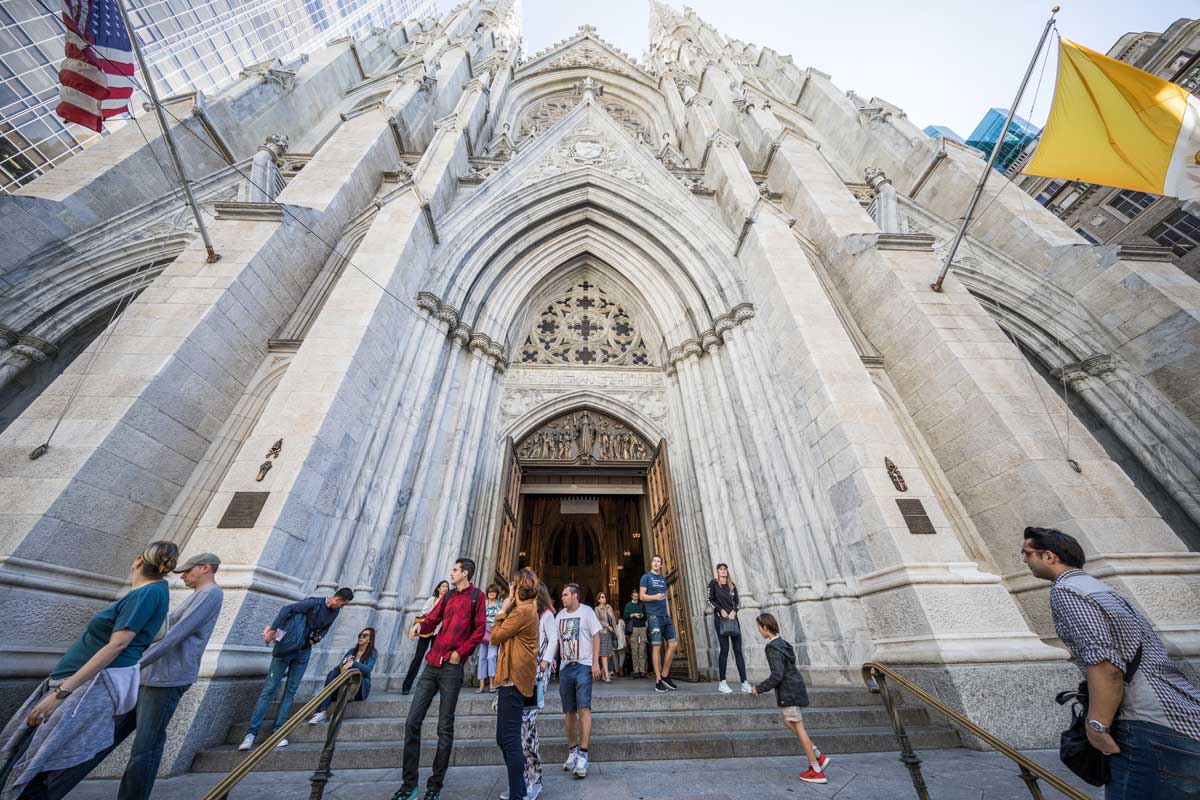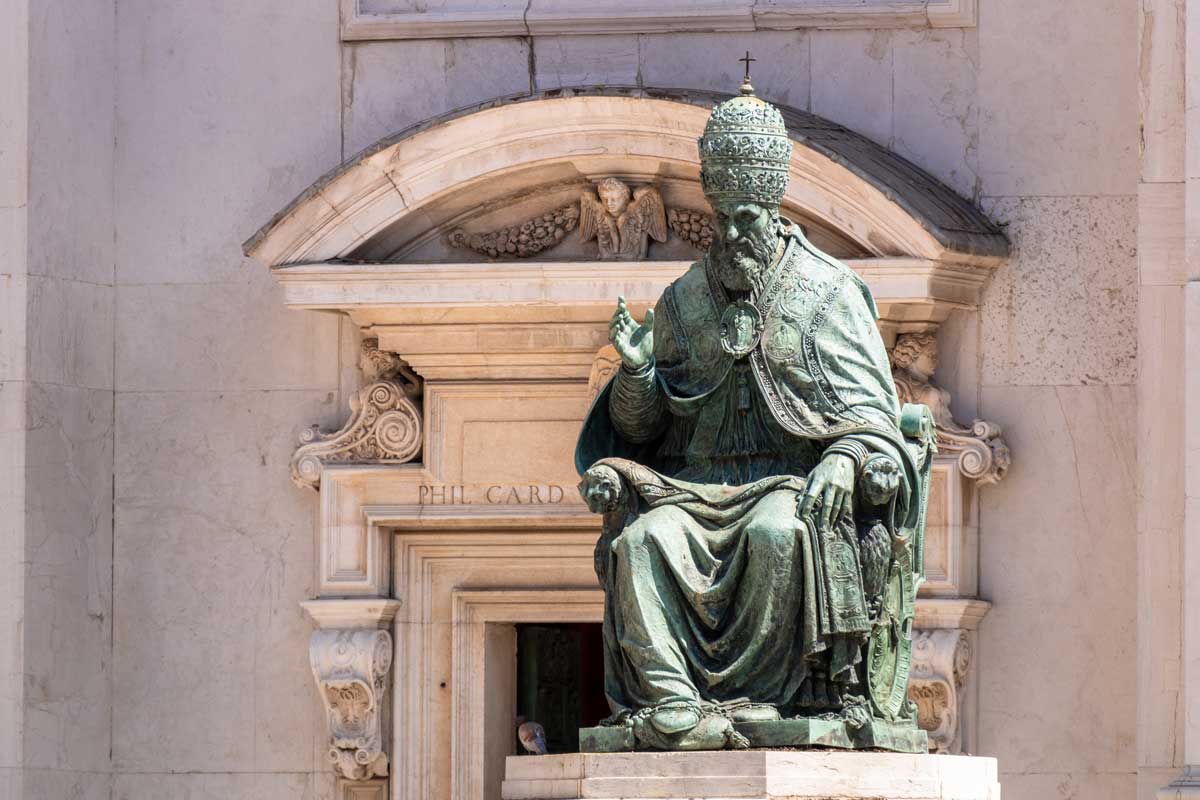No Cure in Sight?
An Encounter with an Evangelical-Roman Catholic Impasse
by James M. Kushiner
On a Friday evening last March 1,000 people gathered in the auditorium of Lake Avenue Congregational Church in Pasadena, California, to hear three Roman Catholics and three Protestants debate the Protestant slogan sola scriptura. Saturday morning they returned for the second and final debate, on sola fide. I had come to witness the debates, entitled, “What Still Divides Us?—A Debate Between Roman Catholics and Protestants.” But I also was there, since the opportunity had arisen, for another reason.
As I eased my way through the crowd in the lobby, I looked carefully from face to face, wondering, would I be able to recognize him after 25 years? It turned out that my Sunday school teacher from my high school days in a Detroit, Michigan, Southern Baptist church was attending the debate. I had recently become reacquainted with him through Touchstone, and I was eager to see him.
A lot has changed for me and my former Sunday School teacher since the ’60s. Neither he nor I are Southern Baptists now, but he remained a Protestant (Presbyterian) while I became Eastern Orthodox. While neither of us had been Roman Catholics, the Roman Church has been a player in our religious lives in one way or the other, especially on the issues of doctrine that separate us. My first debate with Roman Catholics came after our Baptist youth group visited a Sunday 5 o’clock Mass; some of the Roman Catholic youths then came to our Sunday evening service, after which, under the auspices of pizza and sodas, we met in a living room to share our impressions. Of course, being the good Protestant that I was, I wanted to know how Mary could even be mentioned in a worship service. That question neatly skirted by a youth leader, we settled in for polite conversation. My Sunday school teacher, who was not an accomplice in this daring reconnoiter with the Romish apostates, later moved to California and has since taken up teaching in a Presbyterian church and recently co-authored a book with Norman L. Geisler on the subject of Evangelicals and Catholics.
But my hoped-for rendezvous with a faintly familiar face among the 1,000 attending the debate in Pasadena was a personal matter. I also was anxious to see what shape the debates would take. And I wanted to find out if my suspicions were correct.
The Pasadena debates were sponsored by Christians United for Reformation (CURE), a staunchly Reformed (in the Luther and Calvin sense) group dedicated to renewal through a return to the Reformation heritage. Michael Horton, founder and the driving force behind CURE, had criticized the May 1994 statement “Evangelicals and Catholics Together” (ECT) (see Touchstone, Spring 1994) signed by Richard Neuhaus, Chuck Colson, J. I. Packer, and other Roman Catholics and evangelicals.
This statement has become the troubler of evangelicals. Horton was joined in his criticism by other Protestants, including R. C. Sproul, James Kennedy, and television show host John Ankerberg. (The ECT statement, originally drafted by Neuhaus and others, was criticized by Ankerberg on his television show while he offered to sell the eight page statement to his viewers for $10 a copy!)
Protestant rancor grew as some declared there had been a sellout of the Reformation to the Roman Catholic church. Chuck Colson received a load of negative mail. J. I. Packer, a senior editor at Christianity Today (CT), wrote “Why I Signed It” in December. While he did not back down, he did reassure his readers that he had insurmountable difficulties with Roman Catholic doctrines and was in no danger of becoming a Roman Catholic. Ken Kantzer, a CT editor gave it some mild criticism. Touchstone associate editor Patrick Henry Reardon criticized Michael Horton and Kantzer in an editorial. The book published this summer by Baker Book House, Evangelicals and Catholics, criticized Reardon. Several evangelical signers have been successfully pressured to removed their names.
Ankerberg, Sproul, and Kennedy requested a meeting with Colson and Packer in January. Packer and Colson would not remove their signatures from ECT, a solution preferred by the others, but they did issue a statement of clarification to reaffirm their commitment to Reformation doctrine. Packer also issued with Horton an agenda for theological engagement between Evangelicals and Roman Catholics.
On an Ankerberg show afterwards Sproul and company described the January meeting as one that “averted a schism within Evangelicalism.” They also asserted Roman Catholicism to be a different religion from the Christianity of the gospels. My local Christian television station, evangelical as it is, surprised me by putting up a disclaimer for the Ankerberg show. It was against this backdrop that CURE held the winter debate in Pasadena, and I decided to attend, admittedly suspicious of what kind of debate it was going to be. CURE had lined up for the Roman Catholics William Marshner of Christendom College, Patrick Madrid and Robert Sugenis of Catholic Answers; Protestants were represented by Michael Horton, president of CURE, Rod Rosenbladt, Lutheran scholar and lecturer, and W. Robert Godfrey of Westminster Theological Seminary in California.
James M. Kushiner is the Director of Publications for The Fellowship of St. James and the former Executive Editor of Touchstone.
subscription options
Order
Print/Online Subscription

Get six issues (one year) of Touchstone PLUS full online access including pdf downloads for only $39.95. That's only $3.34 per month!
Order
Online Only
Subscription

Get a one-year full-access subscription to the Touchstone online archives for only $19.95. That's only $1.66 per month!
bulk subscriptions
Order Touchstone subscriptions in bulk and save $10 per sub! Each subscription includes 6 issues of Touchstone plus full online access to touchstonemag.com—including archives, videos, and pdf downloads of recent issues for only $29.95 each! Great for churches or study groups.
Transactions will be processed on a secure server.
more on Catholic from the online archives

35.4—Jul/Aug 2022
The Death Rattle of a Tradition
Contemporary Catholic Thinking on the Question of War by Andrew Latham
more from the online archives

28.2—March/April 2015
Man, Woman & the Mystery of Christ
An Evangelical Protestant Perspective by Russell D. Moore
calling all readers
Please Donate
"There are magazines worth reading but few worth saving . . . Touchstone is just such a magazine."
—Alice von Hildebrand
"Here we do not concede one square millimeter of territory to falsehood, folly, contemporary sentimentality, or fashion. We speak the truth, and let God be our judge. . . . Touchstone is the one committedly Christian conservative journal."
—Anthony Esolen, Touchstone senior editor










